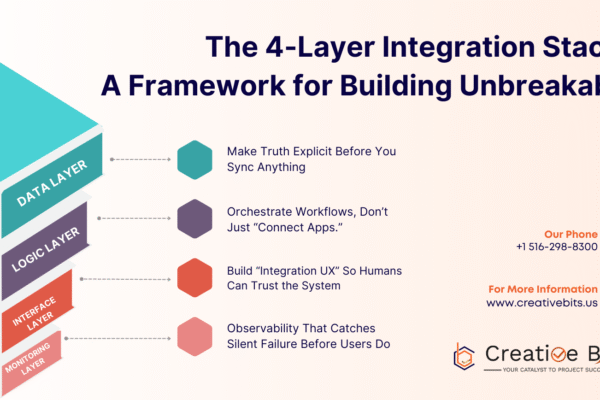In the dynamic landscape of modern business, effective project management is crucial for success. Project Management as a Service (PMaaS) has gained significant traction in recent years, transforming how organizations handle project management, and offering a suite of flexible, scalable, and efficient tools and services. It involves outsourcing project management functions to a third-party provider, who manages projects on behalf of the client. But what exactly is PMaaS, and how can it help Project Management Offices (PMOs) achieve better project outcomes? Let's explore how PMaaS can drive better project outcomes for PMOs.
What is PMaaS?
PMaaS, or Project Management as a Service, is a comprehensive service model that provides organizations with the tools, resources, and expertise needed to manage projects effectively. Unlike traditional project management, PMaaS offers a more holistic approach, combining technology with professional services to deliver end-to-end project management solutions.
Core Components of PMaaS
PMaaS typically includes:
- Project Management Software: Advanced tools for planning, tracking, and reporting on projects.
- Professional Services: Access to experienced project managers and consultants.
- Support Services: Ongoing technical and strategic support to ensure project success.
Benefits of PMaaS
The benefits of PMaaS are extensive. It offers scalability, allowing organizations to adjust resources based on project demands. It provides access to a pool of experienced project managers and consultants who bring valuable expertise to the table. Moreover, it ensures continuous support and maintenance, keeping the project management process smooth and efficient.
The Role of PMOs
Traditional Functions of PMOs
Project Management Offices (PMOs) are central to coordinating and overseeing project activities within an organization. Their traditional functions include setting project management standards, ensuring projects align with business goals, and providing governance and oversight. PMOs are responsible for establishing methodologies, tools, and best practices that guide project execution. They also play a crucial role in resource allocation, risk management, and performance monitoring, ensuring that projects are completed on time, within budget, and to the expected quality standards.
Challenges Faced by PMOs
Despite their critical role, PMOs often face several challenges that can hinder their effectiveness. These challenges include resource constraints, which can limit the ability to manage multiple projects simultaneously. PMOs also struggle with maintaining consistent project management practices across the organization, especially in large or globally dispersed teams. Additionally, keeping up with the rapid pace of technological change can be daunting, requiring continuous updates to tools and methodologies. PMOs must also navigate organizational resistance to change and ensure that all stakeholders are aligned with project goals and practices.
In response to these challenges, PMOs are evolving. They are increasingly adopting new technologies and methodologies to enhance their efficiency and effectiveness. PMaaS is at the forefront of this evolution, offering solutions that address the unique needs of modern PMOs.
How PMaaS Enhances PMO Capabilities
1. Streamlining Project Management Processes
PMaaS provides tools and services that streamline project management processes. From initial planning to final delivery, PMaaS ensures that every step is efficient and well-coordinated, reducing the likelihood of delays and budget overruns.
2. Enhancing Resource Allocation
One of the key strengths of PMaaS is its ability to optimize resource allocation. By leveraging advanced analytics and real-time data, PMaaS helps PMOs assign the right resources to the right projects, ensuring optimal utilization and improved project outcomes.
3. Improving Communication and Collaboration
Effective communication and collaboration are vital for project success. PMaaS offers integrated communication tools that facilitate seamless interaction among team members, stakeholders, and clients. This improves transparency and fosters a collaborative project environment.
4. Real-Time Reporting and Analytics
PMaaS excels in providing real-time reporting and analytics. This allows PMOs to monitor project progress continuously, identify potential issues early, and make informed decisions. The result is greater control over project outcomes and enhanced accountability.
Key Features of PMaaS
1. Scalability
PMaaS services are designed to scale with the needs of the organization, making them suitable for businesses of all sizes and industries. Whether managing a small project or a complex portfolio, PMaaS offers the flexibility to adjust resources and tools as required. This scalability ensures that organizations can handle varying project demands without overcommitting or underutilizing resources. It also allows businesses to grow and expand their project management capabilities as needed, without the need for significant additional investments in infrastructure or personnel.
Customizability
Every organization has unique project management needs, and PMaaS offers flexibility that allows PMOs to tailor the tools and services to fit their specific requirements. This customizability ensures that the project management solution aligns with the organization's processes, culture, and goals, leading to more effective and efficient project execution. PMaaS can be configured to support various project management methodologies, such as Agile, Waterfall, or hybrid approaches, providing the flexibility to adapt to different project types and industry standards.
Security and Compliance
Security and compliance are top priorities for any organization, especially when it comes to managing sensitive project data. Our PMaaS incorporates robust security measures and complies with industry standards to protect sensitive project data and ensure regulatory compliance. These measures include data encryption, secure access controls, and regular security audits. By prioritizing security, PMaaS platforms help organizations mitigate risks and maintain the trust of stakeholders and clients. Additionally, compliance features ensure that project management practices adhere to relevant regulations and industry standards, reducing the risk of legal and financial penalties.
Redundancy and Knowledge Management
PMaaS also offers significant benefits in terms of redundancy and knowledge management. Companies gain access to multiple resources, ensuring consistent service and continuity even in the event of resource changes or absences. This redundancy helps maintain project momentum and reduces the risk of disruptions. Additionally, PMaaS facilitates effective knowledge transfer, ensuring that critical project information is documented and shared across the team. This capability is particularly valuable in maintaining project continuity and leveraging organizational knowledge, ultimately leading to more resilient and successful project outcomes.
Steps to Implement PMaaS in Your Organization
1. Assessing Organizational Needs
The first step in implementing PMaaS is to assess your organization's project management needs. This involves identifying pain points, resource requirements, and desired outcomes.
2. Selecting the Right PMaaS Provider
Choosing the right PMaaS provider is critical. Look for providers with a proven track record, comprehensive service offerings, and the ability to customize their solutions to meet your needs.
3. Developing an Implementation Plan
An effective implementation plan is essential for a smooth transition to PMaaS. This plan should outline the steps, timeline, and resources required for successful implementation.
4. Training and Change Management
Training and change management are vital components of PMaaS implementation. Ensure your team is well-trained on the new tools and processes, and address any resistance to change through effective communication and support.
Common Misconceptions About PMaaS
PMaaS vs. Traditional Project Management Software
One common misconception is that PMaaS is simply another form of traditional project management software. In reality, PMaaS offers a more comprehensive and integrated approach, combining technology with professional and support services.
Cost Implications
Some organizations worry about the cost of PMaaS. However, when considering the potential for improved project outcomes, reduced delays, and better resource management, PMaaS often proves to be a cost-effective solution.
Security Concerns
Security is a major concern for many organizations. PMaaS providers prioritize security, implementing robust measures to protect sensitive project data and ensure compliance with industry standards.
Conclusion
In conclusion, PMaaS represents a significant advancement in project management, offering PMOs the tools and support they need to achieve better project outcomes. By streamlining processes, enhancing resource allocation, and improving communication, PMaaS can transform how organizations manage projects making it an indispensable tool for PMOs.
If you're ready to experience the transformative benefits of PMaaS and improve your project management operations, get in touch with us today! Our expert team is here to help you achieve better project outcomes and drive your organization’s success.

 monday.com Services
monday.com Services
